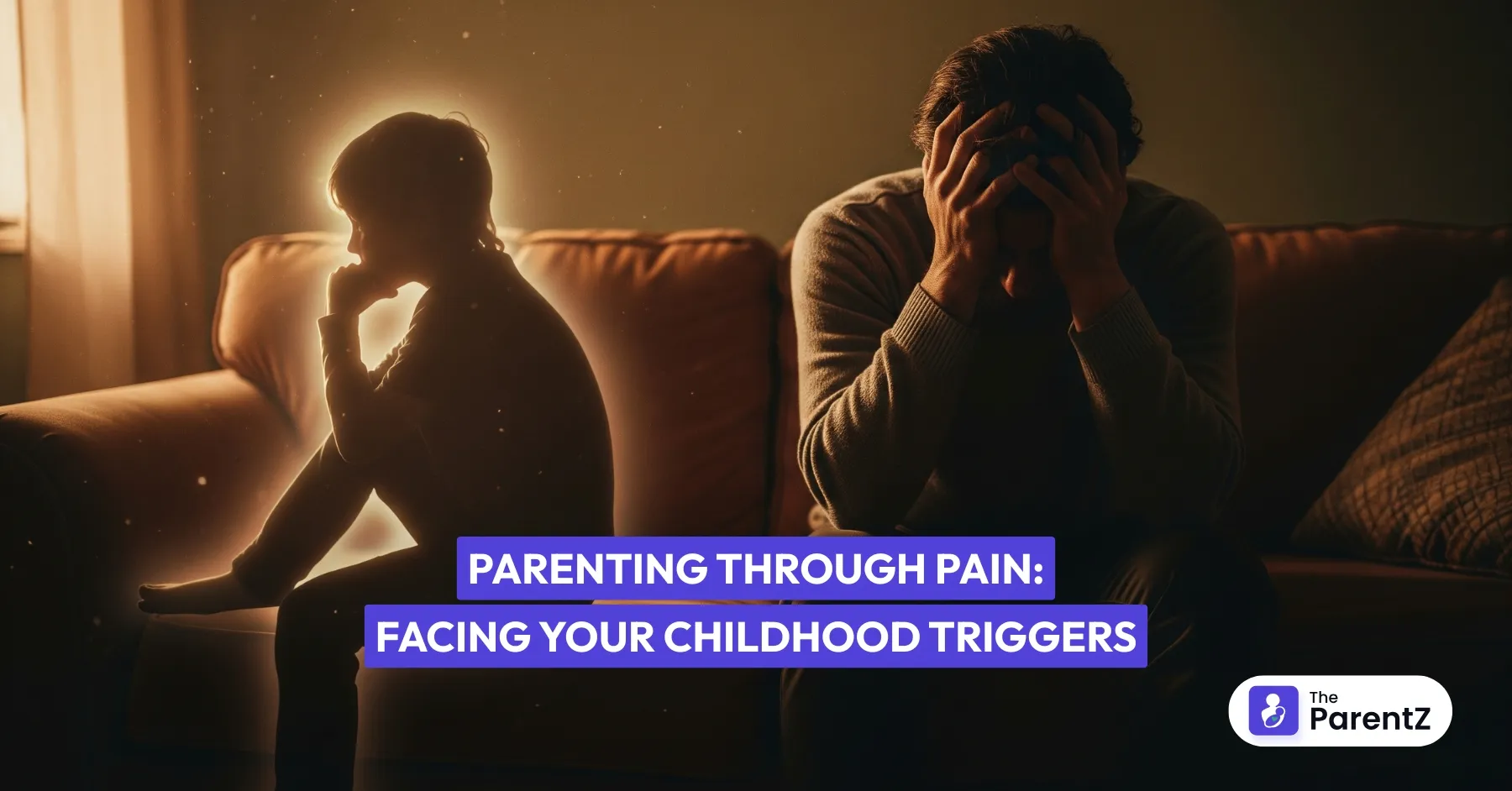Parenting is often described as one of the most beautiful journeys in life. And yes, it truly is. But let’s be honest, parenting is also messy, confusing, and, at times, painful. Not because of our kids, but because when we raise them, parts of our own childhood come rushing back. Sometimes it feels like someone presses an old wound we thought was healed, and suddenly we’re back to being that little boy or girl who once felt scared, unheard, or unloved.
Here’s something important to remember: parents are human too. You carry your own past, your own memories, your own hurts. You’re not broken for having them; you’re just human. The challenge comes when those old wounds show up in your parenting today. This doesn’t mean you’re a bad parent. It just means you’ve been given a chance to break the cycle for yourself and for your child.
Childhood Triggers Don’t Just Disappear
All of us have triggers that were planted in us when we were kids. Maybe you grew up with constant criticism, and now, when your toddler refuses to listen, you feel that same sting of “not being good enough.” Maybe you grew up with neglect, so when your child pulls away, even in a normal phase of independence, it feels like rejection all over again. Or maybe you were taught to fear things like dogs, water, the dark, and without even meaning to, you jump and panic in front of your child, who then learns to feel the same way.
These triggers can be anything:
- Fear of conflict because you grew up in a home where people yelled.
- Fear of failure because you were punished when you made mistakes.
- Fear of abandonment because someone important to you simply wasn’t there.
- Overreacting to mess, noise, or disobedience because it reminds you of the chaos you once lived in.
None of these means you’re unfit to parent. They just mean you have unhealed pain that deserves attention.
When Triggers Spill Into Parenting
The difficult part is that when these triggers show up, they don’t just stay inside us. They often spill into our parenting. Without knowing, we might:
- Overprotect our kids because we are afraid of what hurt us.
- Become harsh at small things because the reaction is bigger than the situation.
- Project our fears onto them. (“Don’t touch the dog, it will bite you!” when actually, the dog is harmless.)
- Struggle to let them be independent because deep down, we’re afraid of being left alone.
Our kids don’t see it as “my parent is triggered.” They see it as “this is how the world is.” And slowly, without us wanting it, our pain gets passed down.
How to Face, Not Pass, Your Triggers
So what can you do? The first step is not perfection, it’s awareness. When you notice yourself reacting too strongly to something small, pause and ask: “Is this my pain, or is this my child’s behavior?” Many times, it’s the old pain being stirred.
Here are a few gentle ways to work through it:
- Name the trigger. Saying “This noise reminds me of the chaos I hated” or “My child’s refusal reminds me of when I felt powerless” gives you clarity.
- Separate past from present. Your child is not your parent, sibling, or teacher. Their behavior is not meant to hurt you; it’s just part of them learning and growing.
- Be honest with your child in a safe way. You don’t have to dump your trauma on them, but it’s okay to say: “You know, Mommy gets scared of dogs because of something that happened when she was little. But that doesn’t mean you have to be scared.” This teaches them that fears are human, but also not final.
- Seek support. A friend, a support group, a therapist. Healing childhood pain doesn’t mean doing it alone.
- Give yourself compassion. The little child in you also needed love and care. Sometimes, parenting yourself alongside parenting your child is the real healing.
Parenting Isn’t About Being Perfect
It’s important to know that you don’t need to be the perfect parent who never gets triggered. That’s impossible. What your child needs is a parent who is real, who acknowledges mistakes, who apologizes, who explains, and who keeps trying. This honesty actually makes your bond stronger.
Think about it: when we pretend everything is fine while carrying a storm inside, kids feel the tension anyway. But when we say, “I got upset, that wasn’t fair. I’ll do better,” they learn that love includes repair. They learn resilience, not fear.
Conclusion
Every time you face a trigger instead of passing it down, you’re breaking a cycle. You’re telling your child: “Your life doesn’t have to be limited by my pain.” And in the process, you’re giving yourself the chance to heal in ways you were never given as a child.
That’s the beauty of parenting through pain: you’re not just raising your child; you’re also raising yourself again, this time with more awareness, love, and care.
So the next time an old memory sneaks up while your child is simply being their loud, messy, curious self, please take a pause. Take a breath. Remember: you are not failing. You are healing. And by healing, you are giving your child the gift of freedom beyond your fears.





Be the first one to comment on this story.